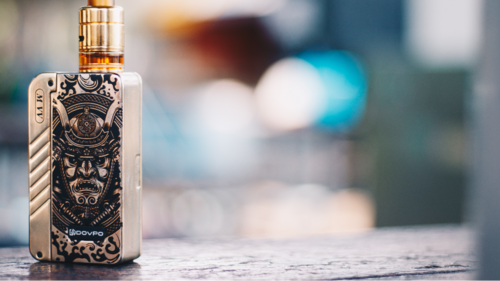News
South Africa’s New Vaping Tax and Young Smokers

Governments worldwide impose excise taxes on products like alcohol and tobacco to reduce their demand, and the South African government has followed suit by implementing a tax on vaping products for similar reasons. However, this move has sparked outrage among vaping lobby groups and manufacturers, who argue that e-cigarettes are less harmful than traditional cigarettes as reported by News 24. They also claim that the new tax will lead to an illicit industry, drive users back to smoking, and fail to deter youth from starting vaping.
Also Read: Anthony Anderson Celebrates South Africa’s WWC Progress: Video
Flawed Targeting of the Vaping Tax:
One of the primary flaws in the current vaping tax system is its lack of targeted impact on reducing vaping consumption among the youth. Surveys have shown that disposable vapes, which are easily accessible and come in various appealing shapes, flavours, and colours, have become increasingly popular among young people. Rather than being used by teenagers switching from smoking to vaping, disposable vapes entice young individuals into a potential lifelong addiction to nicotine.
The Youth Vaping Prevalence:
Surveys conducted in 2022 among high school learners in South Africa revealed that 15% of them used vaping devices, with higher prevalence rates among learners in grades 11 and 12. The attractiveness of vaping devices among young people results from aggressive marketing strategies tailored to appeal to their age group. Moreover, disposable vapes, like AirsPops, have gained significant popularity and are available at major retail chains and online platforms.
Effectiveness of the Excise Tax:
Despite implementing the excise tax on vaping products, the retail prices of popular disposable vapes have remained relatively stable. This indicates that the industry may absorb the tax burden or that older stock is still prevalent in the market.
Disparity with Tobacco Taxation:
Comparing the vaping tax incidence with that of tobacco products, it becomes evident that the tax burden on vaping products is consistently lower than that on tobacco. This disparity raises concerns about the potential consequences of a new addiction epidemic.
Proposed Solutions:
To address the flaws in the current tax system, experts suggest implementing a minimum excise tax amount for all vaping products. This would have a greater impact on small-volume containers, especially disposable vapes, which are commonly used by youth.
Additionally, it is recommended that the National Treasury increases the excise tax on e-cigarettes annually, considering the inflation rate and a pre-announced additional percentage. This multi-year approach would ensure that e-cigarettes become less affordable over time, discouraging young individuals from starting vaping.
While the excise tax on vaping products is a step in the right direction to reduce demand, significant flaws need to be addressed for more effective outcomes. Targeting youth vaping is crucial to preventing a potential public health crisis. By implementing the proposed solutions and adopting a more comprehensive approach, the South African government can better tackle the challenges associated with vaping and safeguard the health of its citizens.
Also Read:
Follow us on Google News
Photo by Parich Sitthichai






















